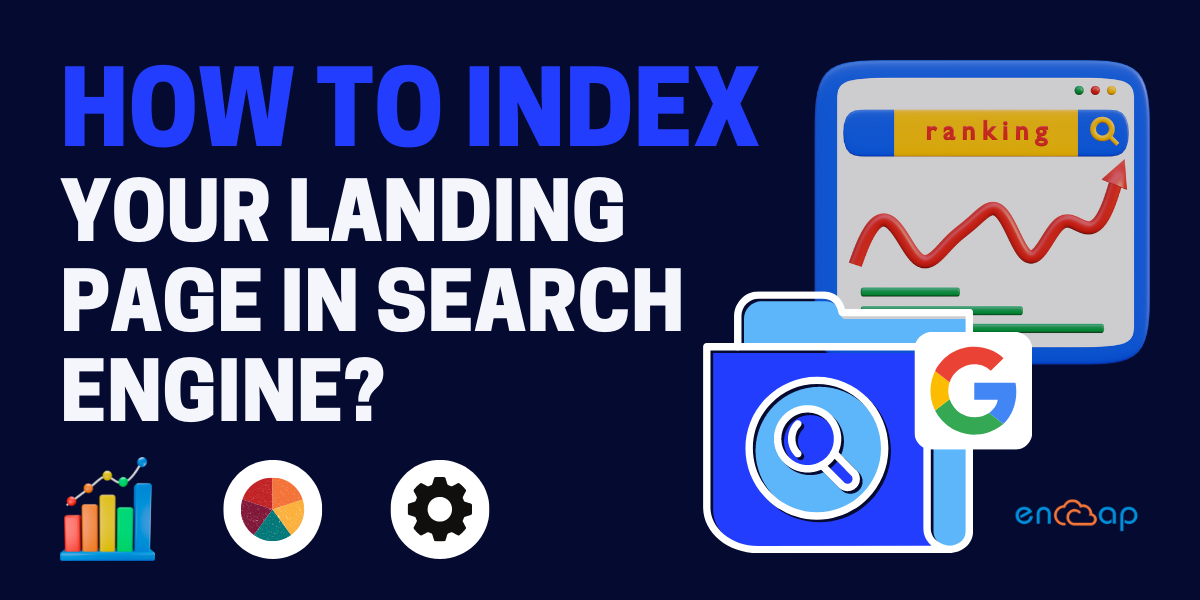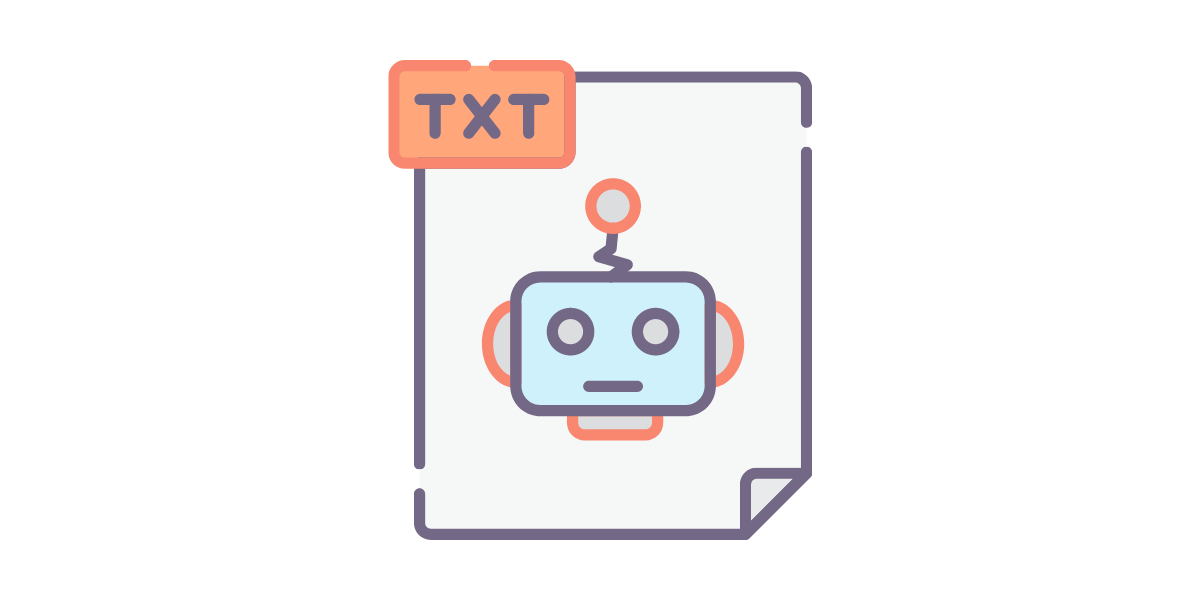How to Index Your Landing Page in Search Engine? | Page Indexing Guide

If you run a business and have a website then you would know the importance of creating a good landing page for selling your products and services. But this is not just it. You should also ensure that people can find it too. To make sure that this happens, page indexing is one of the best ways that enables search engines to recognize your brand.
With page indexing, you can attract the target audience and attract their attention too. This is the first step to enhancing a website’s search engine rankings. Amongst all the search engines, Google page indexing is one of the most important things to focus on.
The fact of the matter is that Google holds a major share of the global search traffic. The page indexing on Google is a list of web pages that it knows about. If you are serious about SERP ranking then you will also have to be serious about page indexing.
In this blog, we will be offering comprehensive detail on page indexing and why it is an important marketing technique. Keep reading to know more.
Table of Contents
What is Page Indexing?

The indexed pages are the web pages that a search engine has in the database of the index. When the bots of a search engine crawl the internet in search of a new page or when they update an already indexed page then that is called page indexing.
The crawlers of the robots examine every page on a website while analyzing all the aspects in complete detail. After this, they include the data in their index. In addition, crawlers also come back to websites for checking new updates which are then added to the ledgers. They periodically crawl to assess the rank of a website.
The more frequently a website gets updated while adding new content to keep it relevant, the easier it becomes to get it ranked. Efforts must be made to fix the responsiveness issues and implement new SEO changes so that the pages can get ranked quickly.
In contrast, a website that is left without any kind of maintenance for a long time can become less relevant. The more outdated a website becomes, the less interesting the information becomes which is why the lower it ranks.
Link Between Page Indexing and SEO

The link between page indexing and SEO can be a lot more complex than it looks. Indexing of URL is important in case you want to meet the positioning objectives in the search results. No matter how much you optimize a page, in case it is not being indexed then it will not rank in the search engine.
It is only the indexed pages that are given a position on the SERP. However, this position can depend on the rest of the on-page and off-page search engine optimization factors that you have worked on. Indexing will change in case you leave a landing page unattended. The factors can be joined by others and can be controlled to a great extent based on content publication rate, site updates, content quality, and existing competition.
The page indexing done at a quantitative level can also affect the SEO positioning of a landing page. The URLs that get indexed under the same domain can take on more weight in the search engine as compared to the competition. This is when the URLs are qualitative as well as quantity is not the only factor.
Why is Landing Page Indexing Important?
The primary purpose behind creating, designing, and even uploading a landing page is to tell most customers about a product or a service. Page indexing is a certain way to improve conversions and also build a robust customer base. If the landing page of a business is not active on the Google list then it is not so likely to show up on the internet.

The key is to understand the importance of indexing. When it comes to indexing a page, the Google spiders crawl a website. The search engines work in three primary ways that are mentioned below.
- Crawling: The search engine bots and spiders crawl the website for verifying the indexing status. They crawl links on web pages to look for new content and some of the most important pages.
- Indexing: The search engine page indexing is also about storing the web page in a database. Once this is done, Google is ready to display results in important queries.
- Ranking: The search engine finds the rank of the web pages using important metrics such as user experience, page relevance, high-quality content, and core web vitals.
The role of search engine optimization is to add a web page to the list. The database allows search engine optimization to find the information useful for users. It is not something that governs rankings.
Google uses algorithms for deciding the search engine rankings along with user demand, web usability, expertise, etc. In case your want your content gets discovered by users then you must ensure that it is always indexable. In case it is not then it is likely that it will go unnoticeable. You can affect indexing by streamlining how crawlers detect a landing page.
Time to Get a Landing Page Indexed
It can often take some time for search engines like Google for indexing a new website. It can be difficult and even challenging until Google indexes a website or even a new landing page. The SEO tags have a lot to do with how simple you are making it for Google to crawl a website.
In case Google does not find your website worthy of indexing then it is never going to index it. You just need to make the journey of crawlers effortless for finding a website. However, the question is how can that be done? There are actually many steps that can be followed for effective indexing. These steps when followed properly can streamline the search engine indexing and quicken the process.
Steps to Ensure Page Indexing In Search Engines
1. Find the Robots.txt File

The Robots.txt files are important because they make it easy for web spiders to crawl a site. Even a little mistake in these files can actually stop the crawlers from finding a web page.
The different search engines follow the prompts of major Robots.txt files. It is important to optimize the files so that you can prioritize the most important pages such as landing pages. This avoids overloading the landing page with requests at once.
In case you are new to this then you can choose to get a technical audit done which makes things easy. You can check the file placement and match Google guidelines as well this way.
2. Verifying the SEO Tags
The SEO tags can be useful for hiding the user information from reaching the search engines. Many times, the SEO tags have the ability to block new pages from reaching a client. Hence, it becomes important to check if the tags are used incorrectly.
Canonical tags can be useful when there are many versions of a single landing page. It tells most search engines to pick chosen pages over the other ones. In case the bots do not find canonical tags then they can consider the page as a preferred page and index it.
In case a canonical tag is there, the crawlers can assume an alternate page can be present. This will leave page indexing even if another landing page is there or not. Removing the canonical tags becomes important for a website so that it functions well.
The no index tags are the ones that convey that most crawlers do not index any landing pages. In case a landing page is facing a page indexing problem then no index tags can be the reason behind it. Google finds pages with high authority backlinks as the important ones. It informs crawlers that the landing pages are important and trustworthy and finally the process of indexing improves.
3. Well-Built Site Architecture

Effective web navigation makes it easy for search engines such as Google to index a page. This is an important search engine optimization technique. When the site architecture is not systematic, the crawlers can get trapped in a loop and they cannot even reach the required pages.
On the other hand, good internal linking guarantees that a page is easy to find. It allows the crawlers to look for the best web pages from all the other ones. The non-linked ones are more like orphaned pages and they do not get indexed. It is therefore important to ensure that the landing pages do not stay on this list but how can that be done?
Attempts must be made to build a good site architecture. You can create an XML sitemap as that is one of the best ways to ensure crawling. You can tell the search engines all about URLs present on a website and links between them. Moreover, you can also update new entries using images and videos. Crawlers can see your pages without any problem from locations.
You can also add high-quality internal links so that the crawlers can find new pages with internal linking. This quickens the process and strategic internal linking also optimizes indexing to other high-quality internal links. Make sure that you do not assign any no to follow links on the pages. When the bots find no-follow tags then move away without indexing them. This is why they must be removed.
4. Page Eligibility for Indexing
It must be ensured that the pages are appropriate for page indexing. We say this because there are many causes of why a URL can get rejected. In case the URL violates any webmaster guidelines then search engines can remove it from the indexing. The unnatural links and keyword stuffing can be held responsible for this.
It is also possible that the URL may be returning a 404 error page. This can be accidental and even intentional that call for backend correction. In other cases, it can also be a server not being able to pick on your landing page.
In other cases, it is also possible that the landing pages are blocked from crawling. You must set some passwords on the page so that the web spiders cannot access your page. The Google search console is a good way to understand how Google is interpreting a page.
5. Promoting Pages Featuring Good Content

High-quality content also makes a difference in ranking and indexing. The high conversion pages including blog posts, landing pages, and home pages are higher in the hierarchy. The low performing content on the other hand accounts for a better crawl budget. It also decreases the relevance of high-priority content.
Google spiders are always looking for pages that can add more value to users in a good way. The duplicate content can also invite an extra penalty and sometimes even raise a red flag. Hence, it is important that you remove any low-quality pages. A perfect example of a low-quality page can be removing duplicated content pages.
The duplicate content page is there to solve problems such as A/B testing on the team while experimenting with the pages before they get launched. These pages differ a little from the original pages.
You will not want search engines to get caught up and display any kind of duplicate content. This can affect the ranking which is why it is better for most search engines to ignore them. You can let web crawlers move around freely on a website for getting valuable content for users.
Conclusion
Page indexing is an important step for achieving better rankings and ROI. In case you have submitted a landing page for indexing, it can take some for it to get indexed. Otherwise, technical errors and on-site issues can block crawlers. Hiring an SEO expert can allow you to index and even enhance the ranking of a landing page.
No comments